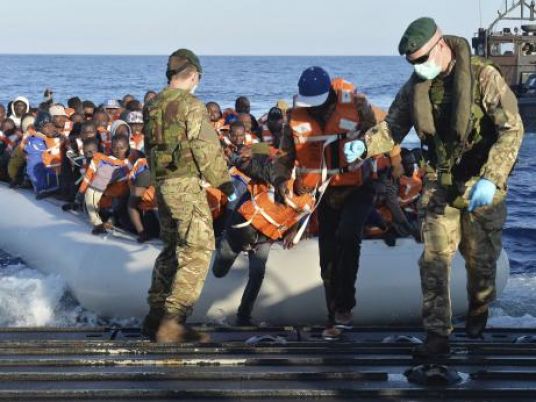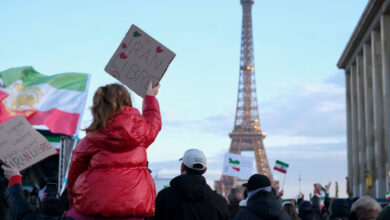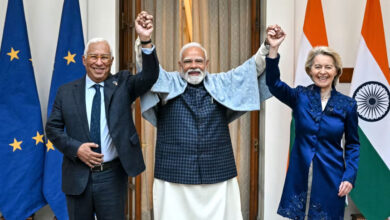
More than 4,200 migrants trying to reach Europe have been rescued from boats in the Mediterranean in last 24 hours, the Italian coastguard said on Saturday.
In some of the most intense Mediterranean migrant traffic of the year, a total of 4,243 people have been saved from fishing boats and rubber dinghies in 22 operations involving ships from nations including Italy, Ireland, Germany, Belgium and Britain.
On Friday the Italian navy said 17 dead bodies had been found on one of the boats off Libya. Details of the nationalities of the victims and how they died have not yet been released.
Migrants escaping war and poverty in Africa and the Middle East this year have been pouring into Italy, which has been bearing the brunt of Mediterranean rescue operations. Most depart from the coast of Libya, which has descended into anarchy since Western powers backed a 2011 revolt that ousted Muammar Gaddafi.
Calm seas are increasingly favoring departures as warm spring weather sets in.
Last month around 800 migrants drowned off Libya in the Mediterranean's most deadly shipwreck in living memory when their 20-meter long fishing boat capsized and sank.
That spurred the European Union to agree on a naval mission to target gangs smuggling migrants from Libya, but a broader plan to deal with the influx is in doubt due to a dispute over national quotas for housing asylum seekers.
Around 35,500 migrants arrived in Italy from the beginning of the year up to the first week of May, the UN refugee agency estimated, a number which has swelled considerably since. About 1,800 are either dead or missing.
Most of those rescued on Friday and Saturday are expected to reach ports around southern Italy during the weekend. The British naval vessel HMS Bulwark offloaded more than 740 early on Saturday at the southeastern Italian port of Taranto.
European Union authorities have pressed member states to share the burden of housing refugees more fairly through a resettlement quota system.
However, an EU plan to disperse 40,000 migrants from Italy and Greece to other countries met with resistance this week. Britain said it would not participate and some eastern states called for a voluntary scheme.




